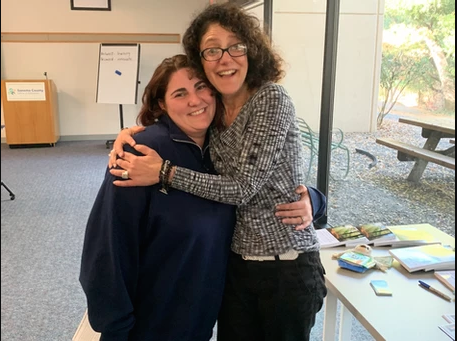Compassion Fatigue: Parenting a High Needs Child
by LauraBeth DeHority, PsyD, LMFT
What is Compassion Fatigue? This term describes the physical, emotional and psychological impact of helping others. Caregivers of traumatized children experience daily behaviors that make them feel exhausted, helpless and sometimes even detached or numb.
Parents of children with high needs become worn down from the constant need to quickly:
- Adapt
- Cope
- Reframe
This state of chaos and vigilance creates a unique stress that impacts:
- Quality of life and well-being
- Overall stability
- Relationships
Early-stage worries when the shock waves are new:
- I can’t do everything. I really should be able to fix this…. Right?
- I can’t make any mistakes because my mistakes cause my child/family to suffer.
- I am afraid of the future.
- I am afraid of things that are out of my control.
Later stage: The long view for those with a positive outlook
- This is hard but I can do this. What I do matters. Each day is a new day and a new opportunity.
- I experience life as a deep connection to family and community.
Later stage: The long view for those with a negative outlook:
- I am sick and tired of feeling sick and tired.
- I worry about finances and employment.
- Why am I failing? I feel depressed. I sense that our family struggles more than we should. I feel overwhelmed and I don’t have access to support and resources.
My child’s challenges are here to stay. How do I change how I feel?
- Caregivers fare better when we accept that making mistakes is part of being human.
- Honest sharing of our burden is a way that caregivers can be connected instead of isolated.
- When we are honest with ourselves about how hard something is while giving ourselves credit for all that we are doing, we create opportunities for reasonable hope that can bolster us in tough times.
What can I do with these negative emotions?
- Distress and stress reduction behaviors such as mindfulness skills can help us to replace maladaptive coping strategies, help us to reduce burnout, and improve our overall quality of life.
- Activities, practices and support when we need help regulating our negative emotions not only help us in the short term, but over time increase the psychological flexibility we need to get through the toughest seasons.
- When we work at finding and honing the tools to reduce conflict and improve relationships, we are much better able to manage stress and improve family functioning.
- It is a paradox that while we are never alone, we feel lonely and isolated. These emotions can be reduced through mindfulness, self-compassion and ongoing self-care.
Am I Going to Carry This Burden Forever?
- Current research shows positive outcomes for our families despite challenges we face over the longer term. An important part of the positive trajectory within our families who move past caregiver burnout is the help we receive from others along the way.
- Lots of studies show emergent positive factors for families who acknowledge compassion fatigue and gain support: resilience, self-efficacy, family cohesion, helpfulness, attachment, balance, connection, self-motivation, hope, and spirituality.
- Researchers have found that parents who are best able to work through the fatigue are those who seek balance between real limitations and striving to lead a life that resembles normal.
Whaaat? There are positive emotions tied to this hard journey?
- Getting the necessary professional and peer support enables us to feel better about all the things that we are doing right even when it feels like everything is going wrong.
- Working within our family to improve communication reduces stress and improves family functioning. When we get support that addresses the emotional burden of parenting a high needs child, we reduce the impact that depression has on our ability to function at our highest level.
- Peer support systems and interventions help us to gain skills that foster hope.
Why Should I Be Spending Energy on Compassion Fatigue When There are So Many Other Things Going Wrong in Our House?
- Mindfulness traits are an emergent factor in caregiver resilience. Parenting a child with high needs is a marathon, not a sprint – and we need all the resilience we can pack in.
- When we find ways to be kinder to ourselves, we can transfer reasonable hope, empowerment, attachment, compassion, empathy, and confidence correlated with reductions in depression, anxiety, and stress to our child and other family members.
Why Does Self Compassion Matter?
People in challenging caregiving roles who have the ability to switch off the critical self-talk and give themselves credit for doing the best job they can in their situation have improved psychological well-being, higher levels of psychological flexibility, improved physical health, improved quality of life and improved caregiver competence.
LauraBeth DeHority, PsyD, LMFT is an adoptive parent and therapist in private practice who specializes in working with caregivers and families who are touched by all forms of special needs. She works with individuals, couples, siblings, groups and multi-generational families to provide support in areas of family roles, communication, stress reduction, anxiety, depression, grief, addiction and trauma release. She is a valued Help One Child trainer, blog article author and podcast guest, as well!









